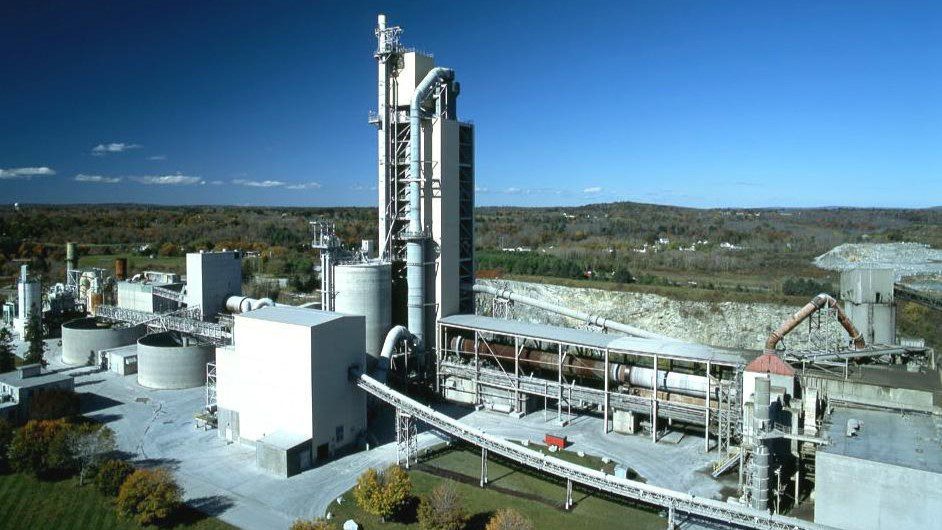The Dragon Cement Company, a prominent fixture on Route One in Thomaston for decades, has announced it will wind down its operations starting at the end of the year, surprising town officials and leaving several pending enforcement actions in its wake.
Dragon, which employs 65 people, is a subsidiary of South Carolina-based Giant Cement Holding Inc. The company said it “will undergo a gradual process of idling the production operations beginning December 2023″ and concluding layoffs by the start of 2025. The company blamed rising “operating and logistical costs” for the decision to close.
“Despite our best efforts to adapt and navigate through these challenging circumstances, we have determined that these actions are necessary for the long-term sustainability of our business,” Roberto Polit, Vice President of Operations, said in a statement Wednesday.
State regulators said Thursday that they will continue to pursue ongoing cases against the Dragon Cement company, including pending air emissions enforcement cases. Federal safety regulators also confirmed that they have issued civil penalties against Dragon.
“The recently made announcement has no impact on pending enforcement action. Dragon must continue to comply with all DEP-issued permit requirements,” said David Madore, a spokesman for the state DEP, said this week.
The DEP wrote Dragon in late August, indicating it would face monetary penalties stemming from air quality violations discovered during inspections in 2019 and 2021.
Separately, in July, The Maine Monitor reported that federal mine safety officials had found 33 workplace safety violations at the Dragon facility during an inspection in May. It was the latest in a string of violations that have led to tens of thousands of dollars in fines over the past several years, federal records show.
The Mine Safety and Health Administration conducted what is known as an “impact inspection” at the Thomaston plant and issued the 33 citations, including ten for “significant and substantial” violations, the federal records show.
The mine safety database lists pending fines of $116,228 stemming from 2023 inspections at the Dragon facility.
“As long as the mine is operating and miners are actively working, the operator must comply with the Mine Act’s requirements and MSHA’s mandatory safety and health standards,” a spokeswoman for the federal agency said Thursday night.
“MSHA has proposed civil penalties associated with the violations that were issued to Dragon Products, and the mine operator has the right to contest those penalties and/or violations before the Federal Mine Safety and Health Review Commission.”
The company did not respond to questions about the enforcement actions on Thursday. In the announcement of its closure, the company said, “Dragon has remained steadfast in adhering to all pertinent laws and regulations.”
Meanwhile, Thomaston officials said the gradual closure of the towns’ biggest taxpayer will have a significant impact. Dragon pays more than $547,000 in personal property taxes and $1.2 million in real estate taxes, the town said.
“Dragon Cement has been an integral part of our community for nearly a century. A news release of its closure is unexpected and will have impacts to Thomaston with the loss of jobs and tax revenue,” the town stated in a statement Thursday.
MaineBiz reported this week that it is unclear what will happen to the plant and the nearby limestone quarry, which totals some 900 acres.
According to a history on its website, a cement plant in Thomaston dates back to 1878.
In 1926, what was then called the New England Cement Company was sold to the Lawrence Cement Company, which invested $4 million on a grinding operation. It was “the largest initial industrial investment in Maine” at the time and “one of the most modern cement plants in the world,” the company history says.
In the years since, the plant has had a number of owners, including the Martin-Marietta company, the Cianbro Company, and, from 1984 to 1988, the Passamaquoddy Tribe.
Dragon Cement Company has been a part of the Giant Cement Holding, Inc. (GCHI) since 2006.







